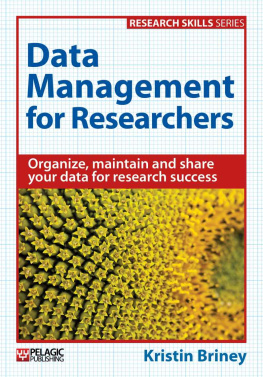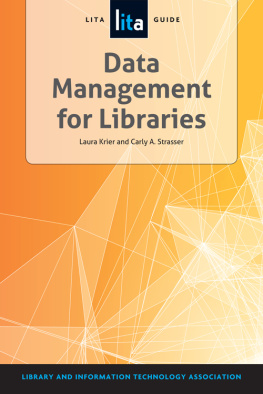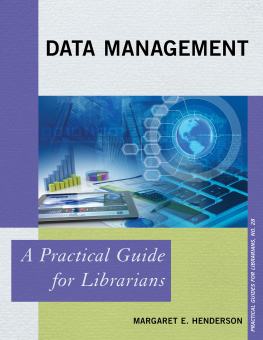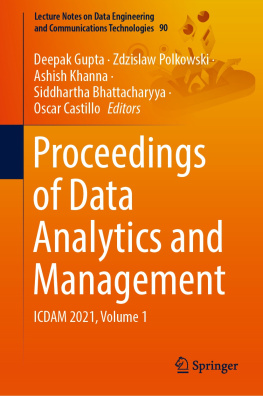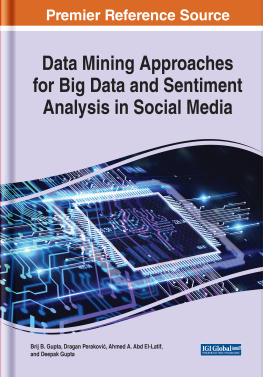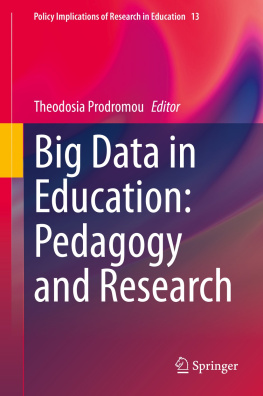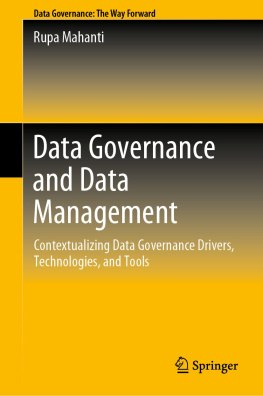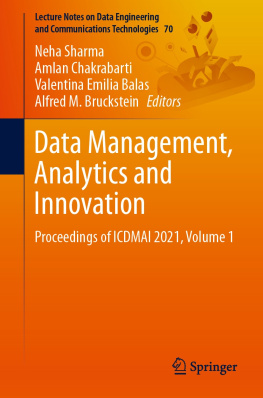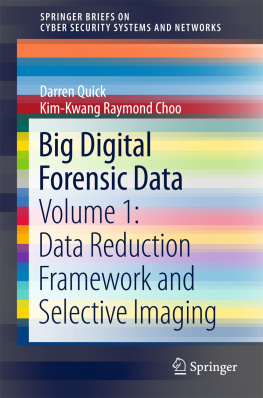Kristin Briney - Data Management for Researchers: Organize, maintain and share your data for research success
Here you can read online Kristin Briney - Data Management for Researchers: Organize, maintain and share your data for research success full text of the book (entire story) in english for free. Download pdf and epub, get meaning, cover and reviews about this ebook. year: 2015, publisher: Pelagic Publishing, genre: Romance novel. Description of the work, (preface) as well as reviews are available. Best literature library LitArk.com created for fans of good reading and offers a wide selection of genres:
Romance novel
Science fiction
Adventure
Detective
Science
History
Home and family
Prose
Art
Politics
Computer
Non-fiction
Religion
Business
Children
Humor
Choose a favorite category and find really read worthwhile books. Enjoy immersion in the world of imagination, feel the emotions of the characters or learn something new for yourself, make an fascinating discovery.
- Book:Data Management for Researchers: Organize, maintain and share your data for research success
- Author:
- Publisher:Pelagic Publishing
- Genre:
- Year:2015
- Rating:5 / 5
- Favourites:Add to favourites
- Your mark:
Data Management for Researchers: Organize, maintain and share your data for research success: summary, description and annotation
We offer to read an annotation, description, summary or preface (depends on what the author of the book "Data Management for Researchers: Organize, maintain and share your data for research success" wrote himself). If you haven't found the necessary information about the book — write in the comments, we will try to find it.
A comprehensive guide to everything scientists need to know about data management, this book is essential for researchers who need to learn how to organize, document and take care of their own data.
Researchers in all disciplines are faced with the challenge of managing the growing amounts of digital data that are the foundation of their research. Kristin Briney offers practical advice and clearly explains policies and principles, in an accessible and in-depth text that will allow researchers to understand and achieve the goal of better research data management.
Data Management for Researchers includes sections on:
* The data problem an introduction to the growing importance and challenges of using digital data in research. Covers both the inherent problems with managing digital information, as well as how the research landscape is changing to give more value to research datasets and code.
* The data lifecycle a framework for datas place within the research process and how datas role is changing. Greater emphasis on data sharing and data reuse will not only change the way we conduct research but also how we manage research data.
* Planning for data management covers the many aspects of data management and how to put them together in a data management plan. This section also includes sample data management plans.
* Documenting your data an often overlooked part of the data management process, but one that is critical to good management; data without documentation are frequently unusable.
* Analyzing your data covers managing information through the analysis process. This section starts by comparing the management of raw and analyzed data and then describes ways to make analysis easier, such as spreadsheet best practices. It also examines practices for research code, including version control systems.
* Managing secure and private data many researchers are dealing with data that require extra security. This section outlines what data falls into this category and some of the policies that apply, before addressing the best practices for keeping data secure.
* Short-term storage deals with the practical matters of storage and backup and covers the many options available. This section also goes through the best practices to insure that data are not lost.
* Preserving and archiving your data digital data can have a long life if properly cared for. This section covers managing data in the long term including choosing good file formats and media, as well as determining who will manage the data in the long-term.
* Sharing/publishing your data the reasons for and against data sharing and some of the practical aspects of sharing. This section covers intellectual property and licenses for datasets, before ending with the altmetrics that measure the impact of shared data.
* Collaborations and data this section addresses how to make data sharing across research groups easier. It covers the practical aspects of systems for collaboration as well as policy concerns like ownership.
* Reusing data as more data are shared, it becomes possible to use outside data in your research. This chapter discusses strategies for finding datasets and lays out how to cite data once you have found it.
This book is designed for active scientific researchers but it is useful for anyone who wants to get more from their data: academics, educators, professionals or anyone who teaches data management, sharing and preservation.
Kristin Briney: author's other books
Who wrote Data Management for Researchers: Organize, maintain and share your data for research success? Find out the surname, the name of the author of the book and a list of all author's works by series.

